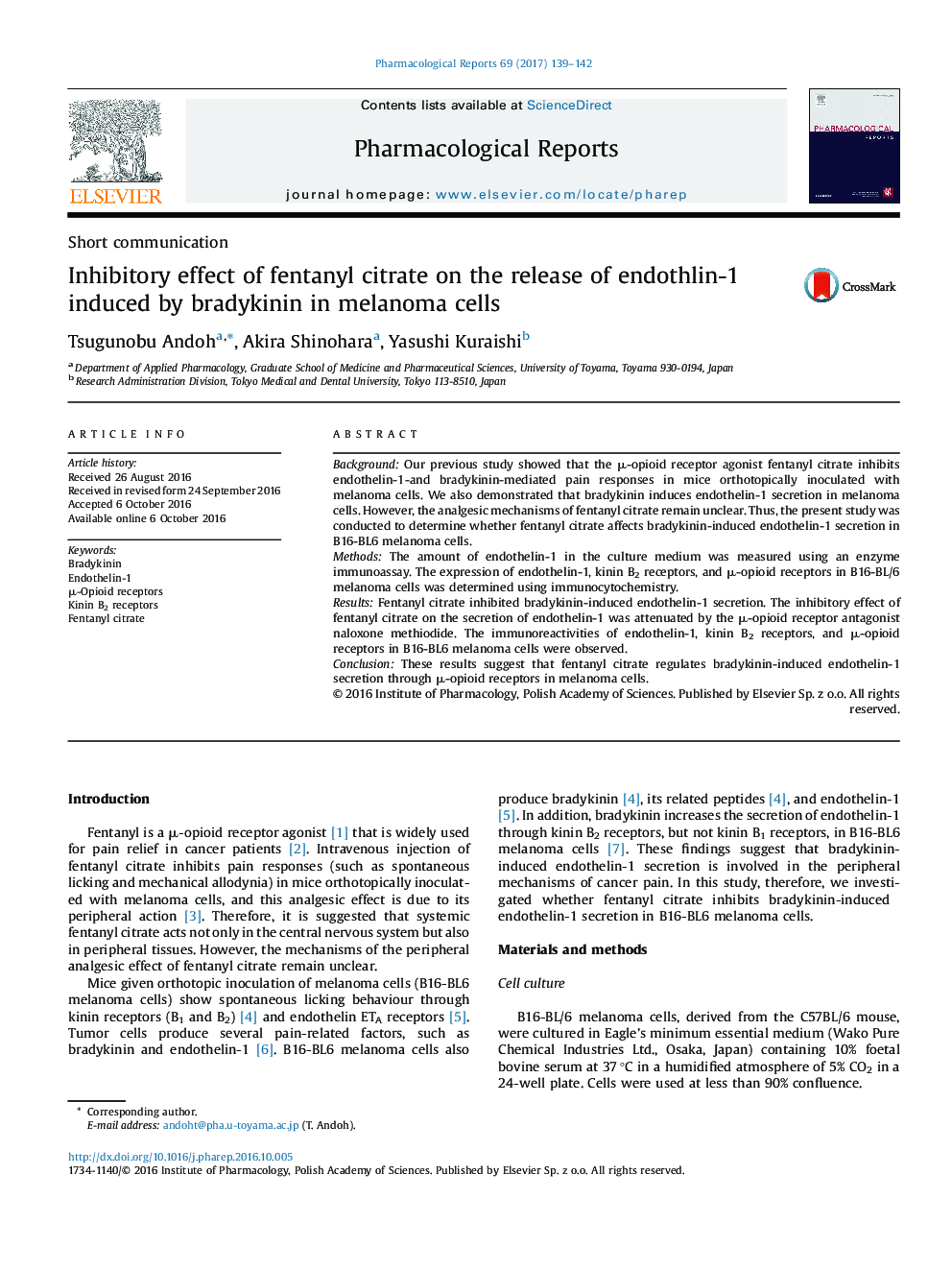| Article ID | Journal | Published Year | Pages | File Type |
|---|---|---|---|---|
| 5515121 | Pharmacological Reports | 2017 | 4 Pages |
â¢Bradykinin (BK) induced endothlin-1 (ET-1) secretion in B16-BL6 melanoma cells.â¢Fentanyl inhibited BK-induced ET-1 secretion in B16-BL6 cells.â¢The action of fentanyl was attenuated by naloxone methiodide.â¢B16-BL6 cells expressed ET-1, kinin B2 receptors, and μ-opioid receptors (MOR).â¢The results suggest that fentanyl regulates BK-induced ET-1 secretion through MOR.
BackgroundOur previous study showed that the μ-opioid receptor agonist fentanyl citrate inhibits endothelin-1-and bradykinin-mediated pain responses in mice orthotopically inoculated with melanoma cells. We also demonstrated that bradykinin induces endothelin-1 secretion in melanoma cells. However, the analgesic mechanisms of fentanyl citrate remain unclear. Thus, the present study was conducted to determine whether fentanyl citrate affects bradykinin-induced endothelin-1 secretion in B16-BL6 melanoma cells.MethodsThe amount of endothelin-1 in the culture medium was measured using an enzyme immunoassay. The expression of endothelin-1, kinin B2 receptors, and μ-opioid receptors in B16-BL/6 melanoma cells was determined using immunocytochemistry.ResultsFentanyl citrate inhibited bradykinin-induced endothelin-1 secretion. The inhibitory effect of fentanyl citrate on the secretion of endothelin-1 was attenuated by the μ-opioid receptor antagonist naloxone methiodide. The immunoreactivities of endothelin-1, kinin B2 receptors, and μ-opioid receptors in B16-BL6 melanoma cells were observed.ConclusionThese results suggest that fentanyl citrate regulates bradykinin-induced endothelin-1 secretion through μ-opioid receptors in melanoma cells.
